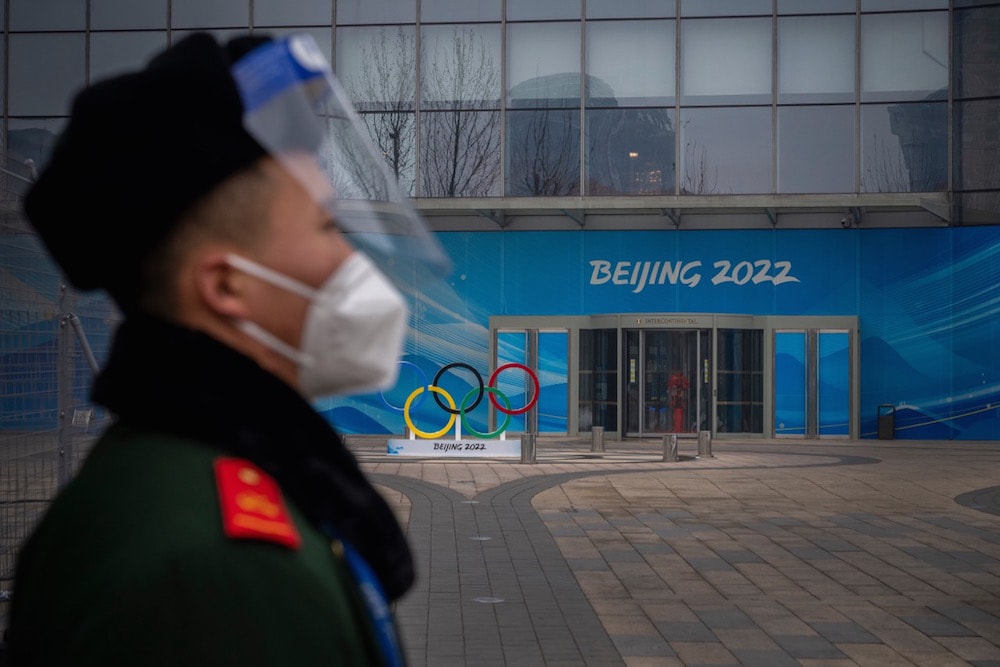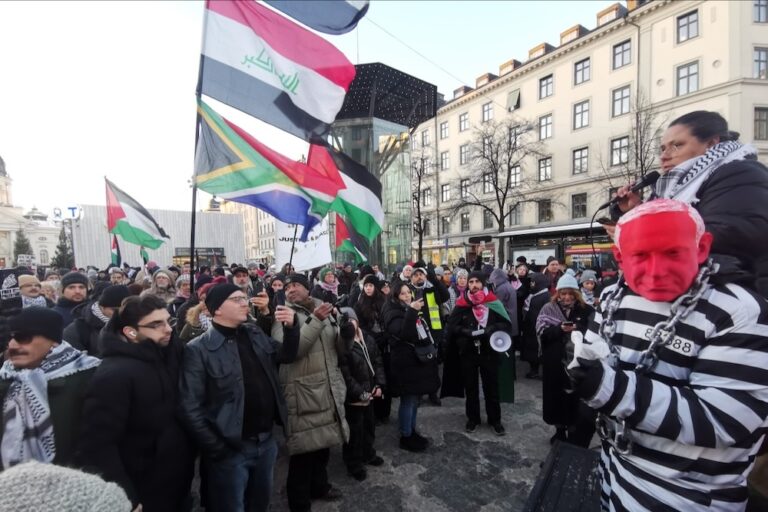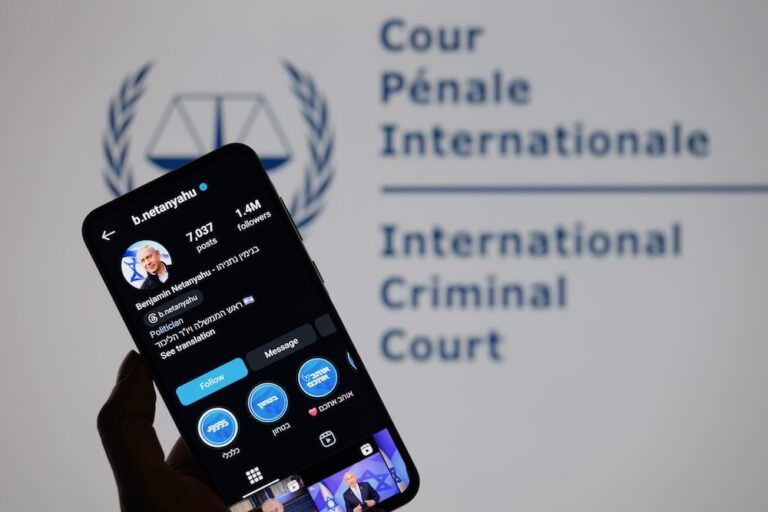The Olympic Games have a history of protest, but China is going out of its way to stop that. With growing concern over the Uyghurs and Hong Kong, Index on Censorship looks at how likely they are to win.
This statement was originally published on indexoncensorship.org on 3 February 2022.
The Olympic Games have a history of protest, but China is going out of its way to stop that. With growing concern over the Uyghurs and Hong Kong we look at how likely they are to win
By Mark Frary, Associate Editor
Athlete protest has been almost as common a feature of the Olympic Games as elite sporting achievement since its modern inception at the turn of the 20th century.
At the 1906 Games, Irish triple jumper Peter O’Connor protested his registration as a British athlete – Ireland did not have a national Olympic committee at the time – by scaling the flagpole during the award ceremony and waving an Irish flag.
The official recognition of the Games as a platform for protest happened in 1955 when then president of the International Olympic Committee (IOC) Avery Brundage wrote guidelines into the Olympic bylaws. These stated that Olympic host cities had to ensure “no political demonstrations will be held in the stadium or other sport grounds, or in the Olympic Village, during the Games, and that it is not the intention to use the Games for any other purpose than for the advancement of the Olympic Movement”.
This did not stop perhaps the best known of all Olympic protests – the Black Power demonstrations at the 1968 Mexico Olympics when American 200-metre athletes John Carlos and Tommie Smith raised their gloved hands in salute during the US national anthem.
Further changes to athletes’ rights to express themselves were codified in a 1975 update to the Olympic Charter in rule 55, which simply said, “Every kind of demonstration or propaganda, whether political, religious or racial, in the Olympic areas is forbidden”.
The IOC has since moved away from this total ban and now declares itself to be “fully supportive of freedom of expression”.
And yet the most recent version of the rule on athlete expression, now known as Rule 50, states that “no kind of demonstration or political, religious or racial propaganda is permitted in any Olympic sites, venues or other areas”. It does though allow for expressing views outside Olympic sites and venues before and after the Games. Athletes are also permitted to express their views in press conferences, during interviews and through their own social media channels.
In 2020 IOC member Dick Pound wrote: “Everyone has the right to political opinion and the freedom to express such opinions. The IOC fully agrees with that principle and has made it absolutely clear that athletes remain free to express their opinions in press conferences, in media interviews and on social media. But, in a free society, rights may come with certain limitations. Rule 50 restricts the occasions and places for the exercise of such rights. It does not impinge on the rights themselves.”
Athletes recognised just how much of a platform the games give them to express themselves, particularly with the global, 24-hour coverage afforded to it in modern times. As a result, they’ve always pushed back against bans. For example, at the delayed 2020 Tokyo Olympics, many athletes and teams took the knee in support of the Black Lives Matter movement within Olympic venues.
So what can we expect from Beijing?
When China last hosted the Olympics in Beijing in 2008, it was a dramatically different country. One continuity was the human rights situation and there were protests organised by activists about human rights abuses in Tibet during those Games. Athletes however kept quiet.
A huge amount has changed in the 14 years since the 2008 Beijing Olympics. Athletes may feel very tempted to speak out. The wider world has been made aware of the Uyghur genocide, involving sterilisation, forced education in detention centres, the disappearance of activists and threats around the world against those who do speak out on the atrocities.
China has also cracked down in Hong Kong, effectively ending the one country, two systems policy. It has introduced the national security law, closed down independent media outlets and jailed political opponents.
Meanwhile, its other abuses – such as those in Tibet – have not gone away. Nor has concern over Chinese tennis star Peng Shuai, who disappeared late last year after she accused a top official of sexual misconduct.
At the Australian Open in January, athletes did use their platform to speak out about Peng Shuai. It would stand to reason the same would happen in Beijing. And yet China is not Australia.
While the rules governing freedom of expression at the Games have been loosened in the wake of athlete protests, Chinese officials have done little to ease concerns over athletes expressing themselves in Beijing. In mid-January, the deputy director of the Beijing organising committee Yang Shu said that “Any expression that is in line with the Olympic spirit I’m sure will be protected.” She then added, “Any behaviour or speech that is against the Olympic spirit, especially against the Chinese laws and regulations, are also subject to certain punishment.”
Basically, speak out and risk prison. It’s a high price to pay.
Then there’s the question of technology. Unlike 2008 when social media was in its infancy, China will be very worried about the potential for protest to reach a much wider audience than before. Anyone making comments on social media from inside the country will be required to communicate with the world through Chinese telecoms companies.
In December, VOA News reported that China has committed to switch off its Great Firewall for athletes and accredited media in the Olympic Village, competition and noncompetition venues, and contracted media hotels.
Just because the Firewall is being relaxed does not mean what athletes say over social media is not being monitored.
One particular concern for athletes at the Games is the requirement to download an app called MY2022 before arriving in China. The app is ostensibly there to maintain a closed loop system relating to Covid measures. However, researchers at Canada’s Citizen Lab says the app is not secure, leading a number of national Olympic committees, including the USA, Canada, the Netherlands and the UK, to advise their athletes to leave their personal devices at home.
In a statement shared with athletes, Canada’s national committee wrote, “We’ve reminded all Team Canada members that the Olympic Games present a unique opportunity for cybercrime and recommended that they be extra diligent at Games, including considering leaving personal devices at home, limiting personal information stored on devices brought to the Games, and to practice good cyber-hygiene at all times.”
The app also has a number of other features beyond health, such as AI-powered translation and weather, and real-time messaging and audio. Citizen Lab says it also includes features that allow users to report “politically sensitive” content while the Android version includes a censorship keyword list.
The organisation said, “We discovered a file named illegalwords.txt which contains a list of 2,442 keywords generally considered politically sensitive in China. However, despite its inclusion in the app, we were unable to find any functionality where these keywords were used to perform censorship. It is unclear whether this keyword list is entirely inactive, and, if so, whether the list is inactive intentionally.”
The list includes terms such as Xi Jinping, Tiananmen riot, Dalai Lama, Xinjiang and forced demolition. Citizen Lab says that many of the terms are in Uyghur or Tibetan scripts, something that is “not common” in other censored apps such as WeChat and YY.
It is highly likely that one or more principled athletes will use the Beijing Games to make a stand over Xinjiang, Tibet or Hong Kong. The question is whether, with the world watching, China will dare to take them to task.
CCP censorship extends well beyond the Olympic Games, including the targeting of Chinese minorities overseas. Index has investigated the extent to which the Chinese government is using its technological and economic leverage, combined with cultural and diplomatic networks, to intimidate, silence, and discredit Uyghurs in Europe. The report – ‘China’s Long Arm: How Uyghurs are being Silenced in Europe’ – will be published on 10 February 2022.



